
- Homepage
- Author
- Aleister Crowley (6)
- Arthur Von Mayer (15)
- Bram Stoker (8)
- Charles Dickens (9)
- Dan Brown (7)
- Dr. Seuss (18)
- Ernest Hemingway (9)
- Frank Herbert (9)
- George Orwell (12)
- Howe, George (6)
- J.k. Rowling (44)
- J.r.r. Tolkien (16)
- Kurban Said (6)
- L. Frank Baum (9)
- Margaret Mitchell (8)
- Mark Twain (8)
- Robert Paul Smith (6)
- Rudyard Kipling (16)
- Stephen King (28)
- Wendell Berry (9)
- Other (2635)
- Binding
- Language
- Region
- Subject
- Americana (30)
- Art & Photography (98)
- Children's (115)
- Cooking (9)
- Exploration & Travel (29)
- History (151)
- Home & Garden (6)
- Illustrated (31)
- Law & Government (8)
- Literature (6)
- Literature & Fiction (504)
- Military & War (18)
- Outdoor & Nature (11)
- Performing Arts (7)
- Philosophy (20)
- Poetry (13)
- Reference (9)
- Science & Medicine (47)
- Self-help (10)
- Sports & Recreation (9)
- Other (1753)
- Type
1773 1st edition Benjamin Franklin ELECTRICITY Metaphysics Meteors Fire Magnets
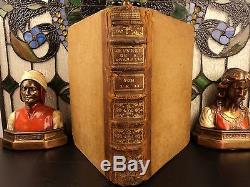
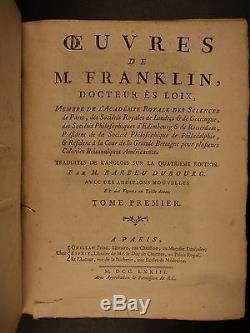
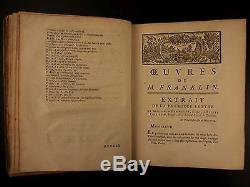
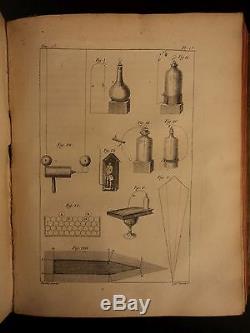
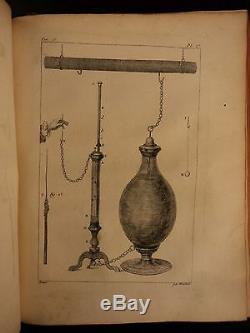
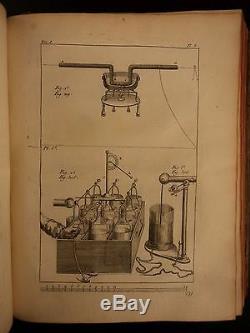
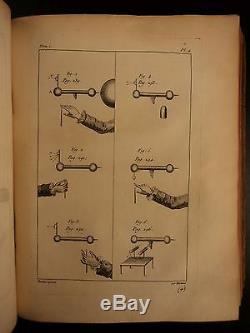
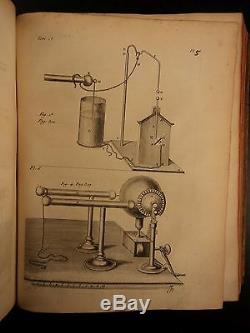
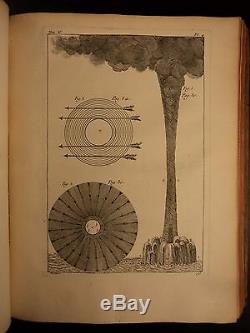
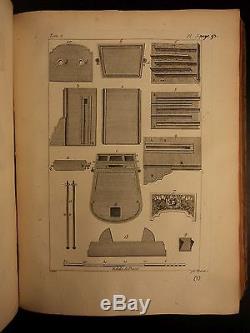
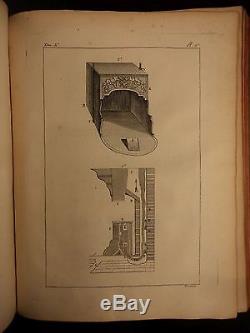
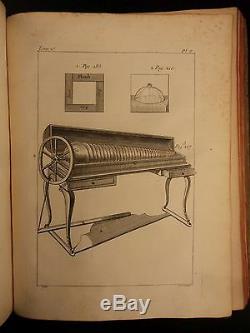


Edition Benjamin Franklin ELECTRICITY Metaphysics Meteors Fire Magnets. Benjamin Franklin (1706 1790) was one of the Founding Fathers of the United States and in many ways was "the First American". A world-renowned polymath, Franklin was a leading author, printer, political theorist, politician, postmaster, scientist, inventor, civic activist, statesman, and diplomat.
An incredible first French edition of Benjamin Franklins observations on electricity. Benjamin Franklin; Barbeu Du Bourg, M. Franklin : docteur ès loix, membre de l'Académie royale des sciences de Paris, des Société royales de Londeres & de Gottingue, des Sociétés philosophiques d'Edimbourg & de Rotterdam, président de la Société philosophique de Philadelphie, & résident à la Cour de la Grande Bretagne pour plusiers colonies brittaniques américaines. Paris : Chez Quillau l'aîné, chez Esprit, et l'auteur, 1773. This is the most complete early edition of Franklins scientific writings in any language. This edition based on the 4. Magnetism in relation to electricity.Wear as seen in photos. Tight and secure leather binding. Complete with all xxii + 338 + xiii + 318 pages; plus indexes, prefaces, and such. 10in X 8in (25cm x 20cm). Benjamin Franklin January 17, 1706 O.
January 6, 1705[1] April 17, 1790 was one of the Founding Fathers of the United States. A renowned polymath, Franklin was a leading author, printer, political theorist, politician, freemason, postmaster, scientist, inventor, civic activist, statesman, and diplomat. As a scientist, he was a major figure in the American Enlightenment and the history of physics for his discoveries and theories regarding electricity. As an inventor, he is known for the lightning rod, bifocals, and the Franklin stove, among other inventions.
[2] He facilitated many civic organizations, including Philadelphia's fire department and a university. Franklin earned the title of "The First American" for his early and indefatigable campaigning for colonial unity, first as an author and spokesman in London for several colonies.
As the first United States Ambassador to France, he exemplified the emerging American nation. [4] Franklin was foundational in defining the American ethos as a marriage of the practical values of thrift, hard work, education, community spirit, self-governing institutions, and opposition to authoritarianism both political and religious, with the scientific and tolerant values of the Enlightenment.
In the words of historian Henry Steele Commager, In a Franklin could be merged the virtues of Puritanism without its defects, the illumination of the Enlightenment without its heat. "[5] To Walter Isaacson, this makes Franklin "the most accomplished American of his age and the most influential in inventing the type of society America would become. Franklin, always proud of his working class roots, became a successful newspaper editor and printer in Philadelphia, the leading city in the colonies. [7] With two partners he published the Pennsylvania Chronicle, a newspaper that was known for its revolutionary sentiments and criticisms of the British policies. He became wealthy publishing Poor Richard's Almanack and The Pennsylvania Gazette. He played a major role in establishing the University of Pennsylvania and was elected the first president of the American Philosophical Society. Franklin became a national hero in America when as agent for several colonies he spearheaded the effort to have Parliament in London repeal the unpopular Stamp Act. An accomplished diplomat, he was widely admired among the French as American minister to Paris and was a major figure in the development of positive Franco-American relations.For many years he was the British postmaster for the colonies, which enabled him to set up the first national communications network. He was active in community affairs, colonial and state politics, as well as national and international affairs.
From 1785 to 1788, he served as governor of Pennsylvania. Toward the end of his life, he freed his own slaves and became one of the most prominent abolitionists. 1 Early life in Boston.
2.1 Junto and library. 2.4 Common-law marriage to Deborah Read. 2.6 Success as an author. 3 Inventions and scientific inquiries. 3.2 Atlantic Ocean currents. 3.4 Wave theory of light. 3.7 Concept of cooling. 3.8 Temperature's effect on electrical conductivity. 3.11 Oil on water. 6.1 Years in Europe.6.2 Defending the American cause. 6.4 Coming of revolution. 6.5 Declaration of Independence. 6.7 Ambassador to France: 17761785. 6.9 President of Pennsylvania.
7 Virtue, religion, and personal beliefs. 9.2 Franklin on U. 9.5 Places and things named after Benjamin Franklin. Franklin's birthplace on Milk Street, Boston, Massachusetts. Franklin's birthplace site directly across from Old South Meeting House on Milk Street is commemorated by a bust above the second floor facade of this building.Benjamin Franklin was born on Milk Street, in Boston, Massachusetts, on January 17, 1706, [1][Note 1] and baptized at Old South Meeting House. He was one of seventeen children born to Josiah Franklin, and one of ten born by Josiah's second wife, Abiah Folger; the daughter of Peter Foulger and Mary Morrill.
Among Benjamin's siblings were his older brother James and his younger sister Jane. He attended Boston Latin School but did not graduate; he continued his education through voracious reading. Although "his parents talked of the church as a career"[8] for Franklin, his schooling ended when he was ten. He worked for his father for a time, and at 12 he became an apprentice to his brother James, a printer, who taught Ben the printing trade.
When Ben was 15, James founded The New-England Courant, which was the first truly independent newspaper in the colonies. When denied the chance to write a letter to the paper for publication, Franklin adopted the pseudonym of Mrs. Silence Dogood, a middle-aged widow. Dogood's letters were published, and became a subject of conversation around town.Neither James nor the Courant's readers were aware of the ruse, and James was unhappy with Ben when he discovered the popular correspondent was his younger brother. Franklin was an advocate of free speech from an early age. When his brother was jailed for three weeks in 1722 for publishing material unflattering to the governor, young Franklin took over the newspaper and had Mrs. Dogood (quoting Cato's Letters) proclaim: Without freedom of thought there can be no such thing as wisdom and no such thing as public liberty without freedom of speech.
[9] Franklin left his apprenticeship without his brother's permission, and in so doing became a fugitive. At age 17, Franklin ran away to Philadelphia, Pennsylvania, seeking a new start in a new city. When he first arrived, he worked in several printer shops around town, but he was not satisfied by the immediate prospects. After a few months, while working in a printing house, Franklin was convinced by Pennsylvania Governor Sir William Keith to go to London, ostensibly to acquire the equipment necessary for establishing another newspaper in Philadelphia. Finding Keith's promises of backing a newspaper empty, Franklin worked as a typesetter in a printer's shop in what is now the Church of St Bartholomew-the-Great in the Smithfield area of London.
In 1727, Benjamin Franklin, then 21, created the Junto, a group of like minded aspiring artisans and tradesmen who hoped to improve themselves while they improved their community. The Junto was a discussion group for issues of the day; it subsequently gave rise to many organizations in Philadelphia. [11] The Junto was modeled after English coffeehouses that Franklin knew well, and which should become the center of the spread of Enlightenment ideas in Britain.Reading was a great pastime of the Junto, but books were rare and expensive. The members created a library initially assembled from their own books after Franklin wrote. A proposition was made by me that since our books were often referr'd to in our disquisitions upon the inquiries, it might be convenient for us to have them altogether where we met, that upon occasion they might be consulted; and by thus clubbing our books to a common library, we should, while we lik'd to keep them together, have each of us the advantage of using the books of all the other members, which would be nearly as beneficial as if each owned the whole. This did not suffice, however. This was the birth of the Library Company of Philadelphia: its charter was composed by Franklin in 1731.
In 1732, Franklin hired the first American librarian, Louis Timothee. The Library Company is now a great scholarly and research library. Benjamin Franklin (center) at work on a printing press. Reproduction of a Charles Mills painting by the Detroit Publishing Company. In 1728, Franklin had set up a printing house in partnership with Hugh Meredith; the following year he became the publisher of a newspaper called The Pennsylvania Gazette.The Gazette gave Franklin a forum for agitation about a variety of local reforms and initiatives through printed essays and observations. Over time, his commentary, and his adroit cultivation of a positive image as an industrious and intellectual young man, earned him a great deal of social respect. But even after Franklin had achieved fame as a scientist and statesman, he habitually signed his letters with the unpretentious'B. In 1732, Ben Franklin published the first German language newspaper in America Die Philadelphische Zeitung although it failed after only one year, because four other newly founded German papers quickly dominated the newspaper market.
[16] Franklin printed Moravian religious books in German. Franklin often visited Bethlehem staying at the Moravian Sun Inn. [17] In a 1751 pamphlet on demographic growth and its implications for the colonies, he called the Pennsylvania Germans "Palatine Boors" who could never acquire the "Complexion" of the English settlers and to "Blacks and Tawneys" as weakening the social structure of the colonies. Although Franklin apparently reconsidered shortly thereafter, and the phrases were omitted from all later printings of the pamphlet, his views may have played a role in his political defeat in 1764. Franklin saw the printing press as a device to instruct colonial Americans in moral virtue. Frasca argues he saw this as a service to God, because he understood moral virtue in terms of actions, thus, doing good provides a service to God. Despite his own moral lapses, Franklin saw himself as uniquely qualified to instruct Americans in morality.He tried to influence American moral life through construction of a printing network based on a chain of partnerships from the Carolinas to New England. Franklin thereby invented the first newspaper chain. It was more than a business venture, for like many publishers since, he believed that the press had a public-service duty. When Franklin established himself in Philadelphia, shortly before 1730, the town boasted two "wretched little" news sheets, Andrew Bradford's American Mercury, and Samuel Keimer's Universal Instructor in all Arts and Sciences, and Pennsylvania Gazette.
This instruction in all arts and sciences consisted of weekly extracts from Chambers's Universal Dictionary. Franklin quickly did away with all this when he took over the Instructor and made it The Pennsylvania Gazette. The Gazette soon became Franklin's characteristic organ, which he freely used for satire, for the play of his wit, even for sheer excess of mischief or of fun.
From the first he had a way of adapting his models to his own uses. The series of essays called "The Busy-Body", which he wrote for Bradford's American Mercury in 1729, followed the general Addisonian form, already modified to suit homelier conditions.
The thrifty Patience, in her busy little shop, complaining of the useless visitors who waste her valuable time, is related to the ladies who address Mr. The Busy-Body himself is a true Censor Morum, as Isaac Bickerstaff had been in the Tatler. And a number of the fictitious characters, Ridentius, Eugenius, Cato, and Cretico, represent traditional 18th-century classicism. Even this Franklin could use for contemporary satire, since Cretico, the "sowre Philosopher", is evidently a portrait of Franklin's rival, Samuel Keimer.
As time went on, Franklin depended less on his literary conventions, and more on his own native humor. In this there is a new spiritnot suggested to him by the fine breeding of Addison, or the bitter irony of Swift, or the stinging completeness of Pope. The brilliant little pieces Franklin wrote for his Pennsylvania Gazette have an imperishable place in American literature.
The Pennsylvania Gazette, like most other newspapers of the period, was often poorly printed. Franklin was busy with a hundred matters outside of his printing office, and never seriously attempted to raise the mechanical standards of his trade. Nor did he ever properly edit or collate the chance medley of stale items that passed for news in the Gazette. His influence on the practical side of journalism was minimal. On the other hand, his advertisements of books show his very great interest in popularizing secular literature.
Undoubtedly his paper contributed to the broader culture that distinguished Pennsylvania from her neighbors before the Revolution. Franklin had mixed success in his plan to establish an inter-colonial network of newspapers that would produce a profit for him and disseminate virtue. [20] He began in Charleston, South Carolina, in 1731. After the second editor died, his widow Elizabeth Timothy took over and made it a success, 173846.
She was one of the colonial era's first woman printers. [21] For three decades Franklin maintained a close business relationship with her and her son Peter who took over in 1746. [22] The Gazette had a policy of impartiality in political debates, while creating the opportunity for public debate, which encouraged others to challenge authority. Editor Peter Timothy avoided blandness and crude bias, and after 1765 increasingly took a patriotic stand in the growing crisis with Great Britain. [23] However, Franklin's Connecticut Gazette (175568) proved unsuccessful. In 1731, Franklin was initiated into the local Masonic Lodge. He became Grand Master in 1734, indicating his rapid rise to prominence in Pennsylvania. [25][26] That same year, he edited and published the first Masonic book in the Americas, a reprint of James Anderson's Constitutions of the Free-Masons. Franklin remained a Freemason for the rest of his life. The item "1773 1st edition Benjamin Franklin ELECTRICITY Metaphysics Meteors Fire Magnets" is in sale since Monday, March 28, 2016. This item is in the category "Books\Antiquarian & Collectible". The seller is "schilb_antiquarian_books" and is located in Columbia, Missouri. This item can be shipped worldwide.- Binding: Leather
- Subject: Science & Medicine
- Topic: Engineering
- Special Attributes: 1st Edition
- Origin: European
- Original/Reproduction: Original
- Year Printed: 1773
- Printing Year: 1773

